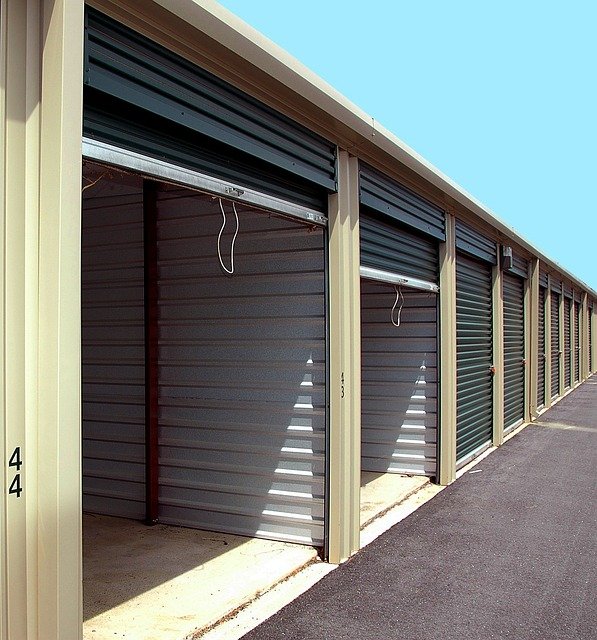Commercial Garage Rental Solutions for Modern Businesses
Discover commercial garage rentals that offer secure, convenient spaces for businesses to store vehicles, equipment, or inventory. With flexible options and easy access, these garages help streamline operations, protect valuable assets, and support efficient business management.

Commercial Garage Rentals for Businesses: Understanding Your Options
Businesses seeking commercial garage space can choose from several rental arrangements depending on their operational needs. Short-term rentals typically range from month-to-month agreements, ideal for seasonal businesses or temporary projects. Medium-term contracts span six months to two years, offering more stability while maintaining flexibility. Long-term arrangements often extend beyond two years and frequently include options for facility modifications or improvements.
Different business types utilize commercial garage rentals in unique ways. Automotive service providers require spaces with proper ventilation, electrical capacity for equipment, and compliance with environmental regulations. Storage businesses need secure facilities with climate control options and easy loading access. E-commerce fulfillment operations benefit from garages with multiple bay doors and sufficient space for inventory management systems.
Commercial Garage Lease Options: Flexible Arrangements
Commercial garage lease structures vary significantly based on location, facility size, and included amenities. Gross leases include most operating expenses such as utilities, maintenance, and property taxes within the monthly rent. Net leases require tenants to pay additional costs beyond base rent, including property taxes, insurance, and maintenance fees. Modified gross leases represent a middle ground, with some expenses included and others passed through to tenants.
Lease terms often include provisions for equipment installation, structural modifications, and signage rights. Many commercial garage leases allow tenants to install specialized equipment like hydraulic lifts, compressed air systems, or heavy-duty electrical connections. Some agreements include options to expand into adjacent spaces as businesses grow, while others offer first right of refusal if the property becomes available for purchase.
Features to Look for in Commercial Garage Rentals
Essential features vary by industry, but several characteristics benefit most commercial garage operations. Ceiling height significantly impacts functionality, with standard commercial garages offering 10-14 feet of clearance, while specialized facilities may provide 16-20 feet for larger vehicles or equipment. Floor construction matters for heavy equipment operations, with reinforced concrete slabs supporting greater weight loads than standard construction.
Electrical infrastructure requirements include adequate amperage for commercial equipment, with many operations needing 220V or 440V service for specialized machinery. Ventilation systems become crucial for automotive work, welding operations, or chemical storage, often requiring exhaust fans, air filtration, or specialized disposal systems. Security features such as reinforced doors, alarm systems, and surveillance capabilities protect valuable equipment and inventory.
Loading access considerations include door sizes, ramp configurations, and turning radius space for delivery vehicles. Climate control capabilities range from basic heating systems to full HVAC installations, depending on inventory requirements or employee comfort needs.
Pricing Guide for Commercial Garage Rentals
Commercial garage rental costs depend on location, size, and amenities, with significant regional variations across different markets. Urban areas typically command higher rates due to land costs and demand, while suburban and rural locations offer more affordable options. Facility age, condition, and included features substantially impact pricing structures.
| Location Type | Size Range (Sq Ft) | Monthly Rate Range | Typical Features |
|---|---|---|---|
| Urban Centers | 1,000-3,000 | $1,500-$4,500 | Basic utilities, security |
| Suburban Areas | 1,500-5,000 | $1,200-$3,200 | Parking, moderate access |
| Industrial Parks | 2,000-8,000 | $1,800-$5,000 | Loading docks, heavy power |
| Rural Locations | 2,500-10,000 | $800-$2,500 | Large spaces, basic amenities |
Additional costs often include utility deposits, maintenance fees, and insurance requirements that can add 15-25% to base rental rates. Security deposits typically equal one to three months’ rent, while some landlords require first and last month’s rent upfront. Modification costs for specialized equipment installation or facility improvements represent separate expenses that tenants usually bear.
Prices, rates, or cost estimates mentioned in this article are based on the latest available information but may change over time. Independent research is advised before making financial decisions.
Maximizing Value in Commercial Garage Rentals
Successful commercial garage rental experiences require careful evaluation of total occupancy costs beyond base rent. Location proximity to customers, suppliers, and transportation networks affects operational efficiency and long-term profitability. Facility scalability becomes important for growing businesses, with lease terms allowing expansion or contraction based on changing needs.
Negotiating favorable lease terms often includes requesting tenant improvement allowances, flexible modification rights, or renewal options at predetermined rates. Understanding local zoning regulations ensures proposed business activities comply with municipal requirements and avoid potential operational disruptions.
Commercial garage rentals provide flexible solutions for businesses requiring specialized workspace without property ownership commitments. Success depends on carefully evaluating location, features, lease terms, and total occupancy costs to find arrangements that support both current operations and future growth plans.




